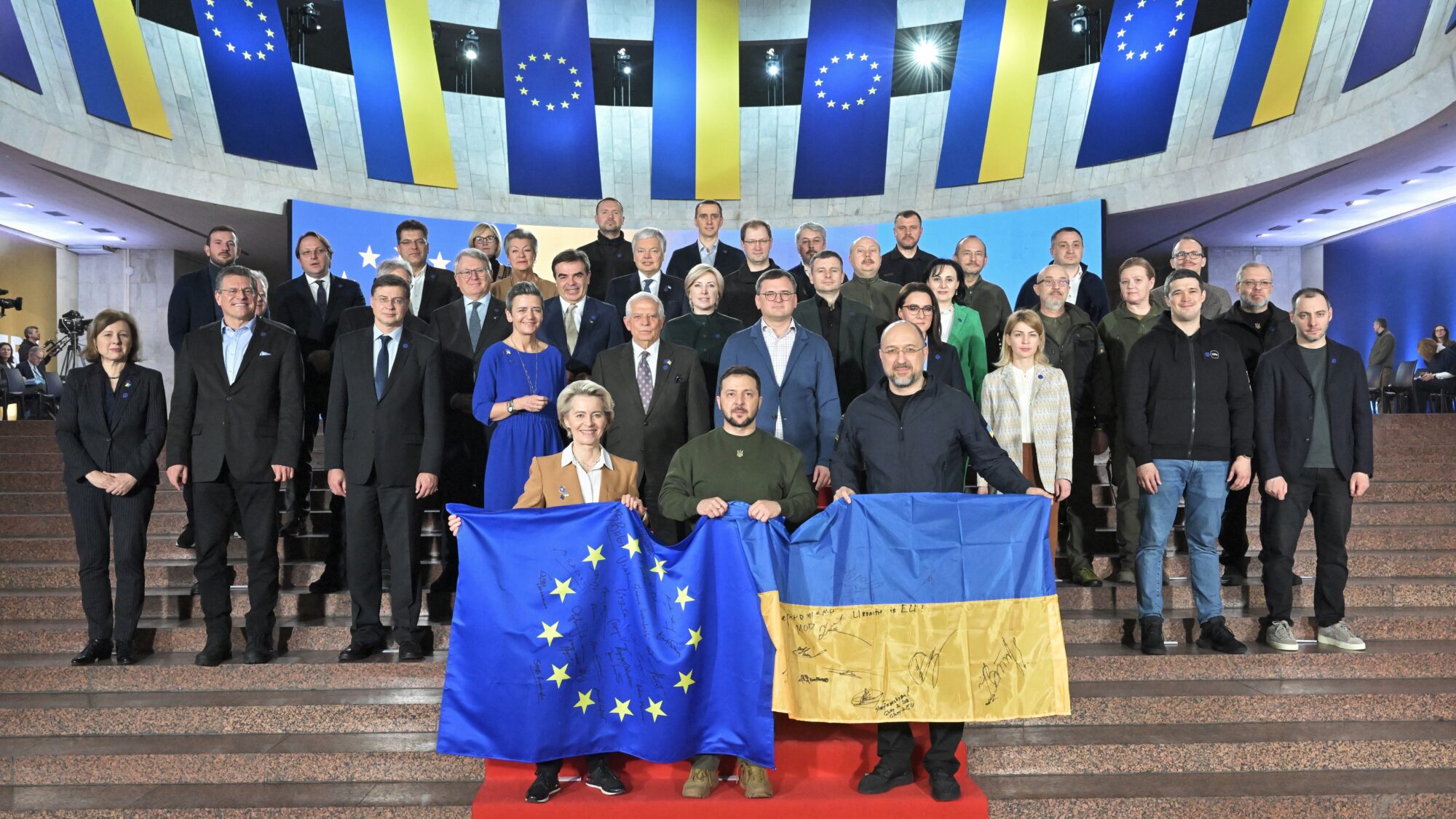
European Commission President Ursula von der Leyen and the College of Commissioners with Ukrainian President Volodymyr Zelensky and members of the Ukrainian government in Kyiv in February 2023.
Dati Bendo / European Commission, 2023
In a desperate bid to stay relevant, EU Commission President Ursula von der Leyen will take a delegation of all 27 members of the EU executive on a trip to Kyiv next week to mark the third anniversary of the Russian invasion. The visit will happen at the same time as presidents Trump and Putin are set to hold bilateral talks in Saudi Arabia.
The Commission announced the visit on Monday, February 17th, just as major EU leaders—along with British PM Keir Starmer and NATO chief Mark Rutte—convened in Paris for an “emergency summit” to discuss Europe’s response to Trump taking charge of the Ukraine peace negotiations and sidelining Brussels in the process.
Such a trip is highly unusual as the College of Commissioners rarely, if ever, undertakes official visits to non-EU countries as a complete group. The only other example would be a planned visit to India later this year to seal a free trade agreement that’s currently being negotiated. Even to Kyiv, the largest delegation of EU executives traveling as a group until now comprised only 15 members back in 2023.
So, this exceptional visit next week is meant to signify the strongest commitment possible—or a desperate rebuke of Trump’s bilateral diplomatic efforts that leave Europe out in the cold.
Washington, however, denied the accusations that it was leaving Kyiv out of the process and negotiating with Moscow behind its back. It is true that Ukraine will not take part in the Riyadh talks on Tuesday, as Zelensky will be in Turkey that day. But the U.S. insists the Trump-Putin talks—which will follow Tuesday’s foreign ministerial meeting in the Saudi capital “very soon”—are only meant to set the scene for further discussions that are also in the pipeline: first another bilateral meeting with Zelensky, then direct negotiations between all three leaders.
In other words, this unusually big show of force from the Commission—along with the Paris emergency summit and whatever will be decided there—is just another desperate attempt to stay relevant in this new geopolitical reality which exposed its painful impotence and strategic failures in the past three years.
